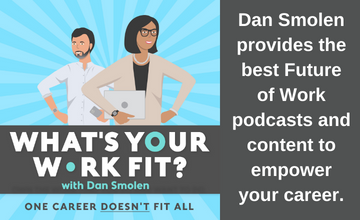Podcast: Play in new window | Download (Duration: 37:01 — 34.0MB)
On What’s Your Work Fit we ask a jarring question posed by several of our viewers: is my boss spying on me?
This week, workplace diversity, equity and inclusion expert Dr. Betty Johnson, answers this and other work and career questions.
“The home was formerly a sanctuary, the place where you could take a breath, drop the mask (the mask of performance), ” laments Dr. Johnson.
With so many workplaces adopting a hybrid work policy, more workers are feeling intruded upon. What is more, many now feel pressure to perform after hours at home.
In this episode, Dr. Johnson answers:
- Is my boss spying on me.
- What channels are companies using to surveil their talent?
- What is allowable versus disallowable intrusion?
- Are bosses using “find my device apps” to watch me?
- Is there transparency around the expectations of remote workplace presence?
Dr. Johnson adds: “Is this a culture of transparency? Or is this a culture where we don’t trust each other, where we do everything that we can to maximize our own self-interest?”
She believes that as transparency wanes, we in the workplace lose trust in each other.
About our guest:
Dr. Betty Johnson is the founder of Bridging the Difference. She is a keen observer of people in the workplace and DEI. She earned a Bachelor of Arts in English from the University of North Carolina at Charlotte and a Ph.D. in Leadership from Antioch University. Dr. Johnson lives and works in Charlotte, North Carolina.
This episode originated as a live show on November 29, 2022. You can watch the show in its entirety on the What’s Your Work Fit YouTube Channel.
EPISODE DATE: December 2, 2022
Dr. Johnson’s social media:
- Website
- Bridging the Difference Live Well Planner (described in this episode)
